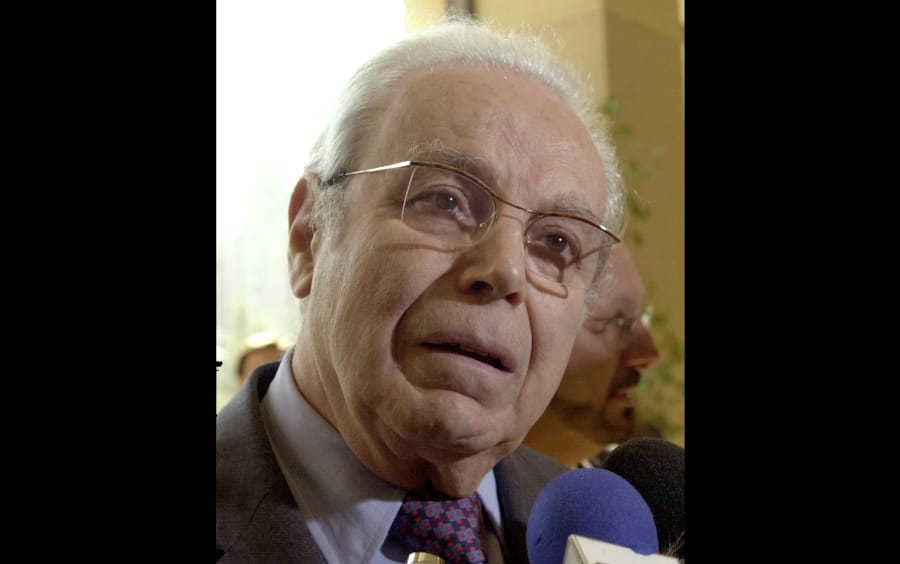LIMA, Peru — Javier Perez de Cuellar, the two-term United Nations secretary-general who brokered a historic cease-fire between Iran and Iraq in 1988 and who in later life came out of retirement to help re-establish democracy in his Peruvian homeland, died Wednesday. He was 100.
His son, Francisco Perez de Cuellar, said his father died at home of natural causes. Current U.N. Secretary-General Antonio Guterres called the Peruvian diplomat a “personal inspiration.”
“Mr. Perez de Cuellar’s life spanned not only a century but also the entire history of the United Nations, dating back to his participation in the first meeting of the General Assembly in 1946,” said Guterres in a statement late Wednesday.
Perez de Cuellar’s death ends a long diplomatic career that brought him full-circle from his first posting as secretary at the Peruvian embassy in Paris in 1944 to his later job as Peru’s ambassador to France.
When he began his tenure as U.N. secretary-general on Jan. 1, 1982, he was a little-known Peruvian who was a compromise candidate at a time when the United Nations was held in low esteem.
Serving as U.N. undersecretary-general for special political affairs, he emerged as the dark horse candidate in December 1981 after a six-week election deadlock between U.N. chief Kurt Waldheim and Tanzanian Foreign Minister Salim Ahmed Salim.
Once elected, he quickly made his mark.
Disturbed by the United Nations’ dwindling effectiveness, he sought to revitalize the world body’s faulty peacekeeping machinery.
His first step was to “shake the house” with a highly critical report in which he warned: “We are perilously near to a new international anarchy.”
With the 1982 Israeli invasion of Lebanon, and with conflicts raging in Afghanistan and Cambodia and between Iran and Iraq, he complained to the General Assembly that U.N. resolutions “are increasingly defied or ignored by those that feel themselves strong enough to do so.”
“The problem with the United Nations is that either it’s not used or misused by member countries,” he said in an interview at the end of his first year as U.N. secretary-general.
During his decade as U.N. chief, Perez de Cuellar would earn a reputation more for diligent, quiet diplomacy than charisma.
“Le ton fait la chanson,” he was fond of saying, meaning that melody is what makes the song and not the loudness of the singer.
Faced early in his first term with a threatened U.S. cutoff of funds in the event of Israel’s ouster, he worked behind the scenes to stop Arab efforts to deprive the Jewish state of its General Assembly seat. There was muted criticism from the Arab camp that he had given the Americans the right of way in the Middle East.
In dealing with human rights issues, he chose the path of “discreet diplomacy.” He refrained from publicly rebuking Poland for refusing to allow his special representative into the country to investigate allegations of human rights violations during the Warsaw regime’s 1982 crackdown on the Solidarity trade union movement.
In July 1986, Perez de Cuellar underwent a quadruple coronary bypass operation, putting in question his availability for a second term. From the outset, Perez de Cuellar had insisted that he would be a one-term secretary-general.
Upset with what he viewed as member states’ reluctance to pitch in to help the world body out of a financial crisis, he told the New York Times in September 1986, “I don’t see any reason why I should preside over the collapse of the organization.”
But he did come back for a second term after a groundswell of support for his candidacy, including a conversation with President Ronald Reagan, who — in the words of the U.N. chief’s spokesman — expressed “his personal support for the secretary-general.”




